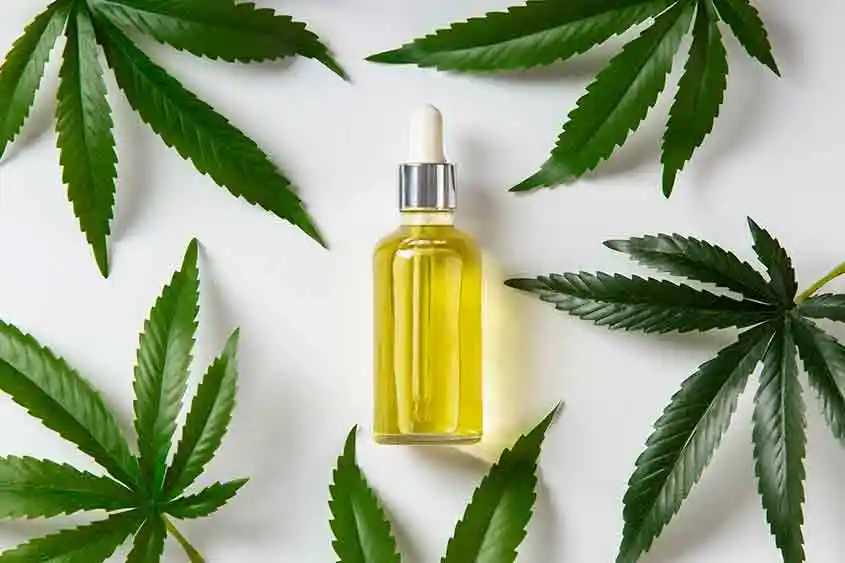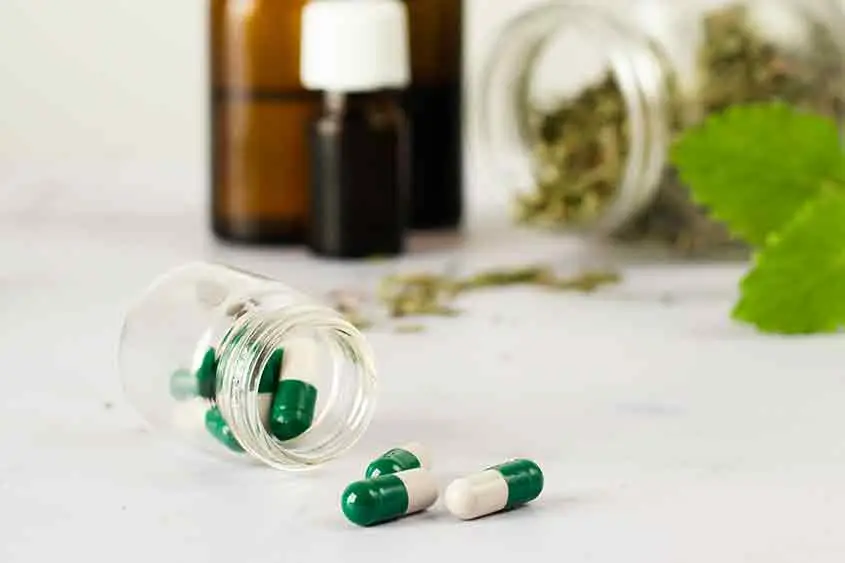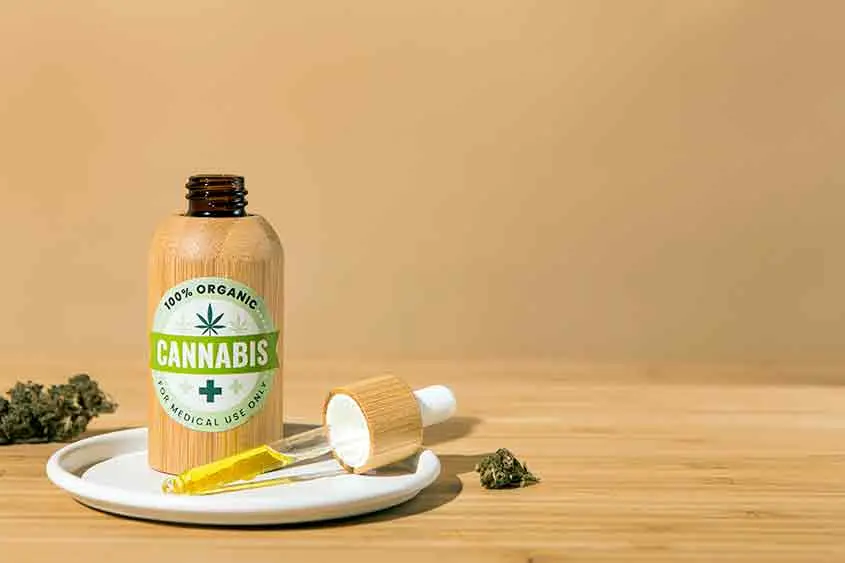Are you among the large number of people eligible for medical marijuana? And are you looking to try it for the first time? This blog is for you! Medical marijuana has been recognized for its potential to alleviate symptoms associated with a variety of conditions such as chronic pain, anxiety, epilepsy, and more. However, navigating the process of legally obtaining and safely using medical marijuana can be overwhelming, especially for newcomers.
This comprehensive guide aims to demystify the process, offering clear and detailed instructions for each step along the way. Let’s discuss everything from obtaining your medical marijuana card, visiting a dispensary and understanding the different methods of consumption! We’ll cover everything you need to know to make your first experience with medical marijuana as smooth and informed as possible. Additionally, we’ll highlight important considerations regarding dosage and potential risks to ensure you approach medical marijuana use safely and responsibly.
Getting a Medical Marijuana Card
Understanding Eligibility
The first step toward legally purchasing medical marijuana involves determining your eligibility. Each state has its own set of qualifying conditions, which often include chronic pain, severe anxiety, epilepsy, multiple sclerosis, and certain terminal illnesses. Research and verify the qualifying conditions in your state to see if your condition allows a medical marijuana card.

Gathering Necessary Documentation
Once you’ve confirmed your eligibility, the next step is to gather the necessary documentation. Typically, this includes:
- A diagnosis from a licensed physician confirming that you have a qualifying condition.
- Medical records or documentation supporting your diagnosis.
- Proof of residency in the state where you are applying.
Check with your state’s medical marijuana program for specific documentation requirements.
Completing the Application Process
Each state has a unique application process for obtaining a medical marijuana card. Here are the general steps involved:
- Consultation with a Physician: Schedule an appointment with a physician who is certified to recommend medical marijuana. During this consultation, the physician will evaluate your condition and determine if medical marijuana is appropriate for you.
- Physician’s Recommendation: If the physician approves, they will provide you with a written recommendation or certification, which is required for your application.
- State Application: Complete the application form provided by your state’s medical marijuana program. This can usually be done online or by mail. Submit the physician’s recommendation along with your application and any required fees.
- Background Check: Some states may require a background check as part of the application process.
- Receive Your Card: Once your application is approved, you will receive your medical marijuana card. This card allows you to legally purchase medical marijuana from licensed dispensaries in your state.
Renewal and Maintenance
Medical marijuana cards typically have an expiration date and need to be renewed periodically. Keep track of your card’s expiration date and follow your state’s renewal procedures to ensure uninterrupted access to medical marijuana. This often involves a follow-up consultation with a physician and submitting a renewal application.
Visiting the Cannabis Dispensary
Preparing for Your Visit
Once you’ve acquired your medical marijuana card, the next step is visiting your nearest cannabis dispensary to purchase the products of your choice. Before your visit, it’s vital to consult your doctor to understand which products are recommended for your condition. This ensures you are informed about the best options for your medical needs.

What to Expect at the Dispensary
Dispensaries can be overwhelming for first-time visitors due to the wide range of available products. Here’s what to expect and how to make your visit successful:
- Identification: Bring your medical marijuana card and a valid ID. Dispensaries require these for verification before allowing entry or making a purchase.
- Consultation with Dispensary Staff: Inform the staff that you are a first-time patient. They can guide you through the various products, including flowers, tinctures, capsules, and more. Don’t hesitate to ask questions about the different forms of medical marijuana, their effects, and their usage.
Choosing the Right Products
Selecting the right product can be challenging. Here are some tips:
- Forms of Medical Marijuana: Familiarize yourself with the various forms, such as tablets, patches, tinctures, and gelatinous cubes. Each form has different onset times and effects.
- Strain Selection: Different strains of cannabis can have varying effects. Indicas are generally more relaxing, sativas are often more energizing, and hybrids can provide a balance of both.
- THC vs. CBD: Understand the difference between THC (tetrahydrocannabinol) and CBD (cannabidiol). THC is psychoactive and provides a high, while CBD is non-psychoactive and often used for pain and inflammation.
Tips for a Positive Experience
- Start Low and Go Slow: Begin with a low dosage to see how your body reacts. You can gradually increase the dosage based on your comfort level and medical needs.
- Ask Questions: The staff at dispensaries are knowledgeable and can provide valuable advice on product selection and usage.
- Follow-up: Keep in touch with your doctor and report your experiences. They can adjust your recommendations based on how you respond to the products.
Medical Marijuana Consumption

Understanding Consumption Methods
Depending on your state’s marijuana laws, you can consume medical marijuana through various methods. Each method has its benefits, onset times, and effects. Here are some of the most common methods:
- Tablets & Capsules: These are ingested orally and provide a consistent dosage. They have a slower onset time but longer-lasting effects.
- Transdermal Patches: These patches are applied to the skin and release cannabinoids slowly over time, providing long-lasting relief without the need to ingest or inhale.
- Gelatinous Cubes: Also known as gummies, these are edible forms of cannabis that come in controlled doses. They are easy to consume but may be restricted in some states.
- Wax: A concentrated form of cannabis that can be vaporized using a special device. It provides a potent dose with fast-acting effects.
- Tinctures: Liquid extracts that are usually taken sublingually (under the tongue) for quick absorption. They are easy to dose and can be mixed with food or beverages.
- Flower: The traditional form of cannabis, which can be vaporized or, in some states, smoked. This method provides immediate effects and is often preferred by those who need rapid relief.
Legal Considerations
Many states do not allow smokable medical marijuana products and edibles like infused cookies, brownies, and candies. It is crucial to check your state’s laws to understand what forms of medical marijuana are permissible. Always stay informed about the latest regulations to ensure you comply with state laws.
Choosing the Right Method
Selecting the appropriate method of consumption depends on your medical condition, lifestyle, and personal preferences. Here are some factors to consider:
- Onset Time: How quickly you need relief. Inhalation methods (vaporizing or smoking) have the fastest onset, while edibles and capsules take longer to take effect.
- Duration of Effects: How long you need relief. Edibles, capsules, and patches provide longer-lasting effects compared to inhalation methods.
- Discreetness: If you need a method that is discreet and easy to use, tinctures and capsules might be the best options.
Tips for Safe Consumption
- Start Small: Begin with a low dose to understand how your body reacts. You can always increase the dosage if needed.
- Stay Informed: Keep up-to-date with the latest information and research on medical marijuana. New products and consumption methods are continually being developed.
- Consult Your Doctor: Always consult your doctor before trying a new method or product to ensure it is safe and appropriate for your condition.
Medical Marijuana Dosage

Individual Sensitivity and Response
The recommended medical marijuana dosage varies significantly from person to person. Some individuals are very sensitive to cannabinoids, experiencing effects with minimal amounts, while others may require higher doses to achieve the desired results. Factors influencing dosage include body weight, metabolism, the severity of symptoms, and previous experience with cannabis.
General Dosage Guidelines
The general advice for medical marijuana dosage is to start with a small amount and gradually increase it as you become more comfortable. This approach is often referred to as “start low and go slow.” It helps to minimize potential side effects and allows you to find the optimal dose for your needs. Here are some steps to follow:
- Initial Dosage: Begin with the lowest recommended dose for your chosen method of consumption. For example, if using tinctures, start with one dropper or less.
- Monitor Effects: After consuming the initial dose, wait and observe how your body reacts. The onset time varies by method: inhalation takes minutes, while edibles and capsules can take up to two hours.
- Gradual Increase: If you do not achieve the desired effects, gradually increase the dosage in small increments. For instance, increase by one dropper for tinctures or one additional edible piece.
- Optimal Dose: Continue adjusting the dosage until you find the amount that provides symptom relief without unwanted side effects.
Benefits of Drinking Cannabis-Infused Beverages
Working with Your Doctor
It is crucial to follow your doctor’s advice when determining the appropriate dosage for your condition. Your doctor can provide personalized recommendations based on your medical history, current medications, and overall health. Regular follow-up appointments are essential to monitor your progress and make any necessary adjustments to your dosage.
Avoiding Overconsumption
Overconsumption of medical marijuana can lead to uncomfortable side effects, such as dizziness, paranoia, and impaired motor skills. To avoid overconsumption:
- Be Patient: Allow sufficient time for the effects to manifest, especially with edibles, which can take longer to take effect.
- Keep a Journal: Track your dosage, consumption method, and the effects you experience. This information can help you and your doctor make informed adjustments.
- Educate Yourself: Learn about the potency of the products you use. Different strains and products have varying levels of THC and CBD, affecting their strength and effects.
Special Considerations
Certain people should be particularly cautious with medical marijuana dosages. For example – the elderly, those with pre-existing health conditions, and individuals taking other medications. Always discuss any potential interactions and side effects with your healthcare provider.
Medical Marijuana Risks
Respiratory Issues
While medical marijuana can offer significant benefits, it’s important to be aware of potential risks. One of the primary concerns is the respiratory issues associated with smoking medical marijuana. Smoking can cause chronic cough, bronchitis, and other respiratory problems. For this reason, many states and medical professionals recommend alternative consumption methods such as vaporizing, tinctures, or edibles.
Impact on Mental Health
Research studies have found a relationship between cannabis consumption and an increased risk of car accidents, as cannabis can impair motor skills and reaction time. Additionally, some studies suggest a link between heavy cannabis use and the development of psychotic disorders. These could include schizophrenia, particularly in individuals with a predisposition to these conditions. It is crucial to use medical marijuana responsibly and avoid driving or operating heavy machinery while under its influence.
Risks During Pregnancy
Pregnant women are particularly advised to avoid medical marijuana consumption. Studies have shown that marijuana use during pregnancy can negatively affect the baby’s growth and overall health. Potential risks include low birth weight, developmental issues, and behavioral problems later in life. If you are pregnant or planning to become pregnant, discuss alternative treatment options with your healthcare provider.
Potential for Dependency
While not as addictive as some other substances, there is a potential for dependency on medical marijuana. Some individuals may develop a tolerance, requiring higher doses to achieve the same effects. In the long run, this can lead to increased consumption and potential dependency. If you notice signs of dependency, such as using more marijuana than intended, seek advice from a healthcare professional.
Interaction with Other Medications
Medical marijuana can interact with other medications, potentially altering their effectiveness or causing unwanted side effects. Common interactions include changes in blood pressure, increased drowsiness, and altered effects of antidepressants and anti-anxiety medications. Always inform your doctor about all medications you are taking to avoid harmful interactions.
Conclusion
While medical marijuana offers significant therapeutic benefits for many patients, it is essential to approach its use with caution and awareness of potential risks. Try understanding the possible adverse effects and take steps to mitigate them. For example, choose safer consumption methods and consult with healthcare professionals. In this way, you can maximize the benefits while minimizing the risks. Safe and informed use of medical marijuana will help ensure it remains a beneficial treatment option for those who need it.
Consult a healthcare professional before using cannabis products; the advice provided is not a substitute for medical guidance.

